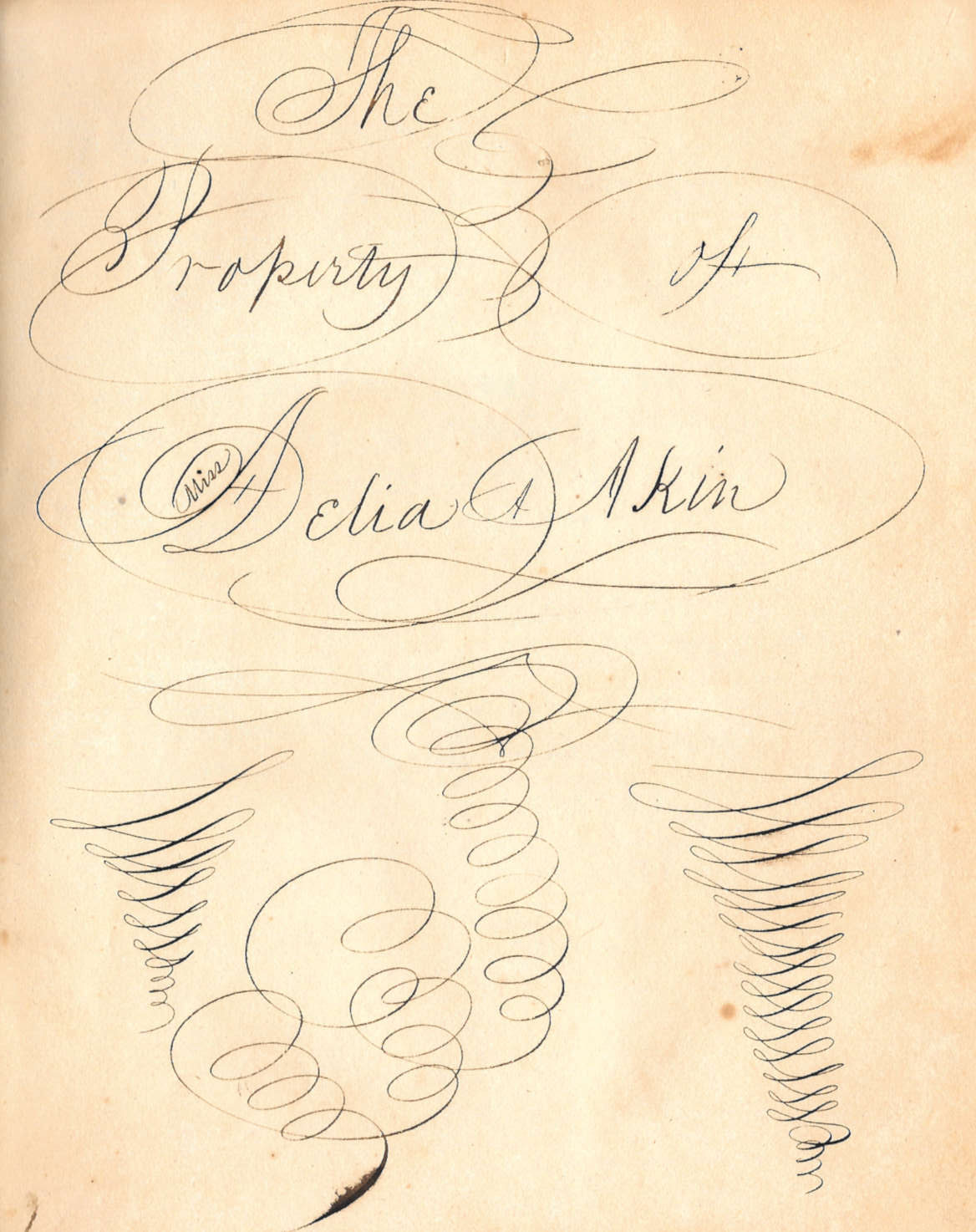(This is a slightly expanded version of what will appear in the Citizen.)
Last month I wrote about the death of Ethen Akin, and his possible relationship to the Mount Pleasant Cemetery. This month, I wanted to write about his life. Ethen was born in 1779 in White Creek, Washington County, NY. About 1803, his father moved the family to Johnstown, Fulton County. Interestingly, by way of a marriage between Ethen’s sister Amy to a Eleazer Wells, the Akin family came into ownership of Johnson Hall, the home of Sir William Johnson. This famous home is today a State park.
We don’t know why Ethen decided to head west. We do know the family was quite mobile and traveled often. For instance, although the family was living in Johnstown at the time, we know that Ethen’s father Edward died in Auburn in 1813. Ethen’s brother, a David Allen Akin, had a son born in Cayuga County in 1808, and was living in Throopsville by 1820. Dates found on Ethen’s mortgages and documents show that he was conducting business in Mentz around 1818.
Of course, we all know that the Erie Canal started construction in 1817 in Rome, and by 1818, work would have been reaching this area. Although the actual digging may not have started, the route would have been marked, making it clear where the best land was in relation to the canal. Ethen had a milling background and may have seen the intersection of the new canal and the flowing waters of the Owasco Outlet as an ideal place to purchase mill rights and construct businesses that needed fresh flowing water. Ethen also traded IOU’s, a pre-bank, pre-cash system of barter that used handwritten notes to facilitate business transactions. He handled these notes as we would cash and had operations in Johnstown and Mentz.
Ethen moved his family to Bucksville in 1822. He purchased Aaron Knapp’s mill, located at the bottom of Pine Street. Family history suggests that Ethen may have been involved with the mill for some time, even helping to fund the construction in 1815. After purchasing the Knapp mill in 1822, he also purchase the water rights to the Outlet, giving him control over who could use the water and how much they could use. He then built a saw mill, distillery, and tannery; all businesses that needed good clean water.
Ethen and his wife Mercy had 12 kids, and all but two were born in Johnstown. The last born was Dewitt Clinton Akin, born on the 4th of July, 1825 in Port Byron. The canal was started on July 4th, 1817 and on July 4th, 1825, when the end of construction was in sight, any father might name his son after the Governor and father of the canal. Dewitt Clinton Akin lived a long life.
Sadly, Ethen never got to see Dewitt live out his long life as he died in October 1825. As the canal was formally opened on October 26, Ethen missed his chance to see Dewitt Clinton sail by on the grand tour that opened the canal. Hopefully someone from the family was able to hold up baby Dewitt to see his namesake pass on by. At the time of his death, Ethen was 46 years old. Oddly, his brother David, who lived 8 miles away in Throopsville, died 8 days later. As we pointed out last month, Ethen and his son are buried in the old section of the Mt. Pleasant Cemetery, in what was called the Akin burial grounds.
Ethen’s wife, Mercy Akin, had eight young children and six businesses to look after. Some of the businesses were sold off, giving the family a certain degree of comfort. In the spring of 1833, Mercy and her unmarried children moved back to Johnstown.
Two of the daughters did marry and settle in Port Byron. Armida Akin married Dr. Hiram Eldridge and it is thought she is buried in the Eldridge plot. Caroline Akin married Elmore P Ross, a well known businessman who went by E.P. Ross.
It might seem odd to recall a man that only lived here for three years. However, in that time, he was one of the most energetic businessmen of the town. He seems to envisioned the promise of the new canal in a “new” land, and helped to start businesses that would go on long after his death.
A couple years ago, an autograph book that belonged to another of Ethen’s daughters, Adelia, was found in San Francisco and returned to Port Byron by a caring treasurer hunter. Adelia never had children and died in 1837 in Kent, Connecticut, so how this book came to be on the other side of the country 150 years later is not known. The 46 pages of inscriptions, which were made by family and friends from Port Byron, Throopsville, Johnstown, and Kent, help show how well read some people were at that time. One of the poems goes as such;
We may write our names in albums
We may trace them in the sand
Or my chisel them in marble
With a firm and skillfull hand
But the pages soon are sullied
For each name will fade away
Every monument will crumble
Like all earthly hopes decay.
But my friend there is an album
Full of leaves of snowy white
Where no name is ever tarnished
But forever pure and white
In that Book of Life – God’s Album
May your name be penned with care
And may all here have written
Write their names forever there.
(Much of the information in this article was taken from the excellent work of Robert Larry Akin.)
